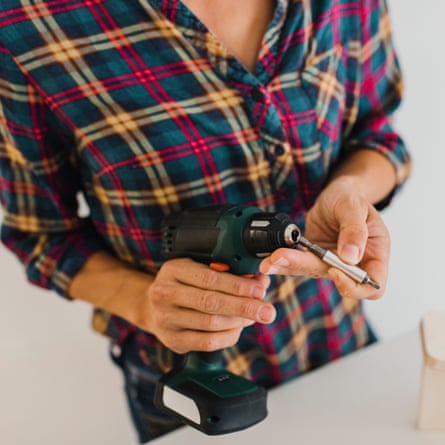Self-care: why taking honest correct care of No 1 isn’t ceaselessly simplest on your wellbeing – Guardian
Like many folk, I derive that stress transforms me true into a defective combination of Oscar the Grouch and Scrooge McDuck. The extra stress I’m beneath, the extra short-tempered I truly feel – and the much less generous I turn into. I partly blame our custom. I’ve read enough wellness advice to seize that I must prioritise my own wants over diversified people’s. And so, when I truly feel beneath stress, I contain in most cases made it a habit to practise puny indulgences aimed in direction of restoring my psychological equilibrium, while insulating myself from all nevertheless essentially the most very indispensable social commitments.
Having read essentially the most up to date psychological study, I will be capable to’t succor nevertheless wonder if this angle only exacerbates my detrimental mood. A wealth of most up to date experiences has proven that being kind to others is most ceaselessly the excellent ability of suppressing the physiological and psychological stress response. Whether we are giving our time to a charity, “paying it ahead” in a espresso shop, or providing emotional succour to friend in need, altruism can boost our wellbeing in ways in which we simply manufacture no longer abilities from treating ourselves. Other-care, it appears, is most ceaselessly no doubt one of many excellent styles of self-care.
My ardour as a science creator was first piqued by a sequence of papers examining the surprising vitality of volunteers. Over hundreds of experiences, scientists contain chanced on that horny in unpaid work for the supreme of others brings a notable boost to wellbeing. These consist of a smarter sense of that suggests and goal, extra self-love, better overall lifestyles satisfaction and reduced threat of depression. Moderately amazingly, it even appears to nick succor the threat of dying. “The enact on mortality truly stands out,” says Beth Nichol, an partner lecturer at Northumbria College and lead creator of a most up to date scientific overview summarising the proof.
In immense inhabitants experiences such as these, it is ceaselessly conceivable that a third “confounding” ingredient can even level to the apparent link. Volunteers would be in better shape earlier than they even open their altruistic endeavours, as an instance. “Well being is a handy resource that permits us to seize part in society,” explains Prof Arjen de Wit, a sociologist at VU Amsterdam. Then there’s wealth: richer people, who can derive the money for better clinical care and therefore can even live longer, would be extra seemingly to volunteer.
The scientists contain tried to manipulate for these chances, nonetheless, and a valuable result aloof remains. A most up to date meta-prognosis, as an instance, assessed the implications of volunteering for of us weak 65 and older, from 26 of the absolute most realistic-quality experiences on hand. It concluded that the frequent volunteer has a 57% likelihood of outliving the frequent one who would now not volunteer..

A immense investigation led by De Wit, maintaining information from a quarter of 1,000,000 European people, suggests that the advantages would be cumulative. “While it is doubtless you’ll presumably presumably truly contain a twelve months-by-twelve months enact to your health, then it will add up whilst you retain it up volunteering, and that can own a distinction, especially for older people,” he says.
Sooner than you register with a native charity, it is value noting that many alternative altruistic activities seem to bring a the same health bonus. Caring for visitors or family – thru emotional support or by running sparkling errands – is also notion to own bigger longevity, as an instance. “The scientific proof at this level could be very real,” says Tristen Inagaki, an partner professor in psychology at San Diego State College. “Three separate experiences contain proven that giving extra social support to a partner or somebody else that we’re shut to is connected to lower mortality – so extra giving predicts better longevity for the duration of five, seven, and 23-twelve months classes.”
Why would this be? One conceivable explanation is that supporting others simply increases bodily task, as we bustle around making ourselves helpful. Inagaki’s study, nonetheless, suggests that the advantages can even lie deep in the mind’s emotional processing.
In one experiment, she asked 20 females to maintain a mind scan while keeping fingers with their partners, who got defective electrical shocks. Inagaki saw increased task in the ventral striatum and septal web page – areas which would be acknowledged to be desirous about reward – and reduced task in the amygdala, which tends to reply to threat and possibility. The act of giving support, in diversified phrases, perceived to be rising a warmth buzz of enjoyment while dampening feelings of stress.
Inagaki saw a the same response when people donated raffle tickets to friend or family member. Intriguingly, the extent of this neural task perceived to be linked to their habitual behaviour. Participants that endorsed statements such as “I give others a plot of comfort in instances of need” saw bigger changes in these key mind areas.
The areas desirous about stress suppression, Inagaki says, can affect the actions of the cardiovascular and immune systems, which would level to why kind and supportive behaviour is connected to better health.
It’s enticing to mediate that we’re going to be ready to harness these advantages for ourselves while making the arena a smarter web page for others, too. The gold traditional of any detect is the randomly managed trial, by which persons are assigned to receive the interesting therapy or a placebo. There are, nonetheless, some inherent difficulties in “prescribing” generous behaviour and measuring the implications – nevertheless about a scientists contain attempted to beat these challenges, and their findings are bright.
Withhold in mind a detect led by Ashley Whillans at Harvard Industry College, which examined the advantages of reward-giving for of us that had beforehand been diagnosed with hypertension.
Each participant was given three funds of $40, contained in a sealed bottle, over six weeks. Half were advised to indulge themselves, while the comfort were impressed to treat one other particular person. “It would now not topic how you remark the $40, as long as you remark it on somebody else,” they were urged.
The result was a valuable tumble in blood stress, over and above their existing therapies for hypertension. To present precise figures: the generous team recorded 113.85 systolic and 67.03 diastolic mmHg, when put next with 120.71 and 72.97 mmHg in the self-serving people. The distinction is similar to the implications of taking hypertension medication or embarking on a new food map and remark regime.
The excellent advantages seem to come succor when we mix our kind and generous behaviour with valuable social engagement. Researchers in Canada and the US gave random passersby at a college campus a $10 Starbucks reward card. Some were urged to give the cardboard to 1 other particular person, without accompanying them to the espresso shop, while others were asked to affix the recipient and abilities a drink collectively. A Third team were impressed to meet up with somebody, nevertheless utilize the cardboard to aquire a espresso for themselves, while the fourth team were urged to switch to the espresso shop on my own and abilities some “me time” with their free drink. That evening, every participant carried out questionnaires measuring their emotional wellbeing.

We can bet that the large majority of the people for the duration of the experiment were rather elated on the free voucher, nevertheless the biggest mood boost went to the people that treated their partner to espresso and conversation, maximising the chance for social connection.
Gillian Sandstrom, a psychology lecturer on the College of Sussex, suspects it’s all referring to the feedback you receive. “I mediate we intuitively know that kindness is a correct ingredient,” says Sandstrom, who was a co-creator of the espresso-card detect. “But whilst you’re precise writing a cheque, you don’t rep the identical feelgood ingredient as whilst it is doubtless you’ll presumably presumably peek the adaptation that you just’ve made.” This was evident when her colleagues examined the implications of charitable donations: people rep extra satisfaction from giving money to somebody in my concept linked to the charity than simply striking some profit a sequence field.
Inagaki suspects this will seemingly be precise for various forms of social support; we favor to seize that our actions contain had the specified affect. “If we truly feel the care we’ve given doesn’t address the need, or succor the actual person or the self-discipline off, or alleviate the self-discipline, there are causes to hypothesise that giving that extra or much less care shall be much less helpful for health,” she says. The outcomes can even additionally depend upon our sense of autonomy. Feeling obliged to cook and soft for an ungrateful family member can even truly feel very diversified from willingly providing our support to friend who has precise left clinic, as an instance, and who makes it sure that our efforts are deeply appreciated.
Worthy remains to be chanced on, including the affect of gender. Most experiences manufacture no longer narrate any constant variations in the quantity of succor equipped by men or females, or in the health advantages of these actions. Sandstrom’s study, nonetheless, suggests that we manufacture contain gendered beliefs referring to the kinds of succor and support we can even aloof supply, and people have a tendency to concern about breaking these norms. A man would be much less comfortable cooking chicken soup for a in unhappy health honest correct friend, while a woman can even seek information from some extra or much less unfavorable judgment for doing family repairs. “Researchers don’t mediate that there’s any distinction in how kind men and females are, precise in the fashion that they conclude it,” she says. Overcoming these biases can even succor us derive new opportunities to succor others that we for the time being leave out.
Take care of any psychological technique, we can even aloof apply the lessons of this study with precise caution. Whereas you are struggling to cope, it is aloof sparkling to set sure private boundaries; there don’t seem like any advantages to becoming a martyr.
While you manufacture contain the time and sources, nonetheless, it is doubtless you’ll presumably presumably also derive prioritising diversified-care to be the supreme antidote to your detrimental moods and lethargy. Irrespective of some preliminary scepticism, I practise this myself. My irritability, I’ve realised, is most ceaselessly a trace that I want extra contact with others, no longer much less, and so I gape opportunities to beat these moments of misanthropy. I invariably truly feel better for having shifted my psychological level of curiosity outwards – and per chance I’ll even live longer consequently.
-
David Robson is the creator of The Authorized tricks of Connection: 13 Social Recommendations That Will Turn out to be Your Life, printed by Canongate (£18.Ninety 9). To relief the Guardian and Observer clarify your copy at guardianbookshop.com. Shipping expenses can even apply


